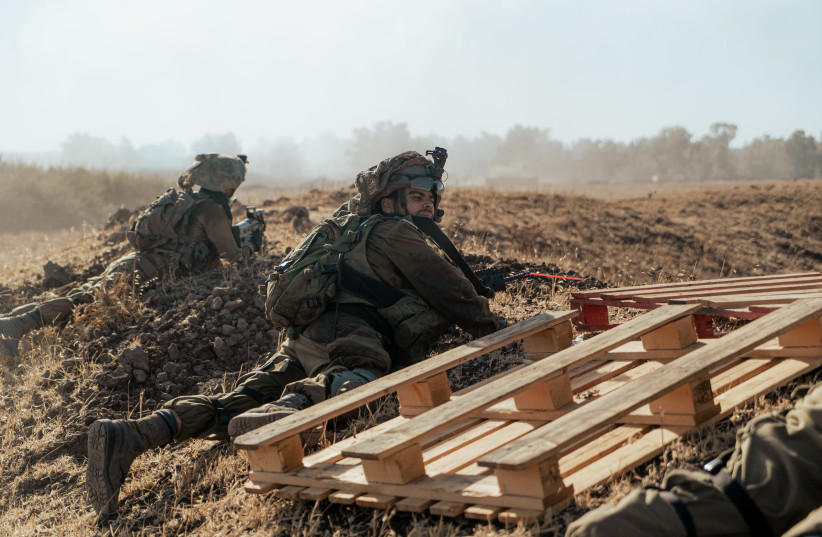The Givati infantry brigade’s Tzabar battalion is ready for the security demands on the Lebanese border and for northern warfare after holding a three-day exercise starting last Tuesday, Combat Support Company Captain Dan Katzir said in a conversation with The Jerusalem Post.
“No one can stop us,” said Katzir. “We are prepared to protect our citizens, defend the towns in the North, and all of Israel.”
Much of Givati has been deployed in the Gaza Strip area, where it has faced rising tensions in the form of riots, shooting and explosive attacks, and incendiary balloons, but Tzabar has been preparing for its redeployment to the North, which has its own challenges.
“We try to prepare the soldiers for every reality,” said Katzir, who explained that both the terrain and enemy were different on the northern border than down south.
Soldiers practices traversing and operating in rocky hills and forests
During the battalion-wide exercise (targad), the soldiers practiced traversing and operating in rocky hills and forests and engaging in simulated battles in open fields, woodland warfare, and urban combat.

Katzir’s combat support company contains specialized platoons like mortars and snipers, the latter of which held a live fire exercise on Wednesday morning.
“We need to be ready for anything, we’re always at a high level of alertness,” said Katzir. He said that this included keeping mindful of the enemy’s technological developments. Soldiers in the North have to be conscious not just of direct attack by gunmen, but also of enemy action in the air and underground – Hezbollah tunnels are still a danger.
A longstanding threat from Hezbollah is anti-tank weaponry, which is employed not just against vehicles, but infantry positions. During the exercise, the soldiers practiced combined arms operations with tanks and armored personnel carriers. Katzir said that in one exercise they trained for response against anti-tank guided missile attack on their armor, and deployment and response by the infantry.
Battalion-level exercises involve grueling marches for dozens of kilometers followed by strenuous sprints of simulated combat. The soldiers operate with little sleep and minimal food, often in bitter cold or sweltering heat.
“It’s important that people don’t forget that the warriors are working hard, and it shouldn’t be taken for granted,” said Katzir.
The northern border has been heating up with intrusions into Israeli territory, with Hezbollah setting up tents and Lebanese infiltrations.
Yet with these challenges, Katzir said the Tzabar Battalion “is like a spring ready to jump” into action.
